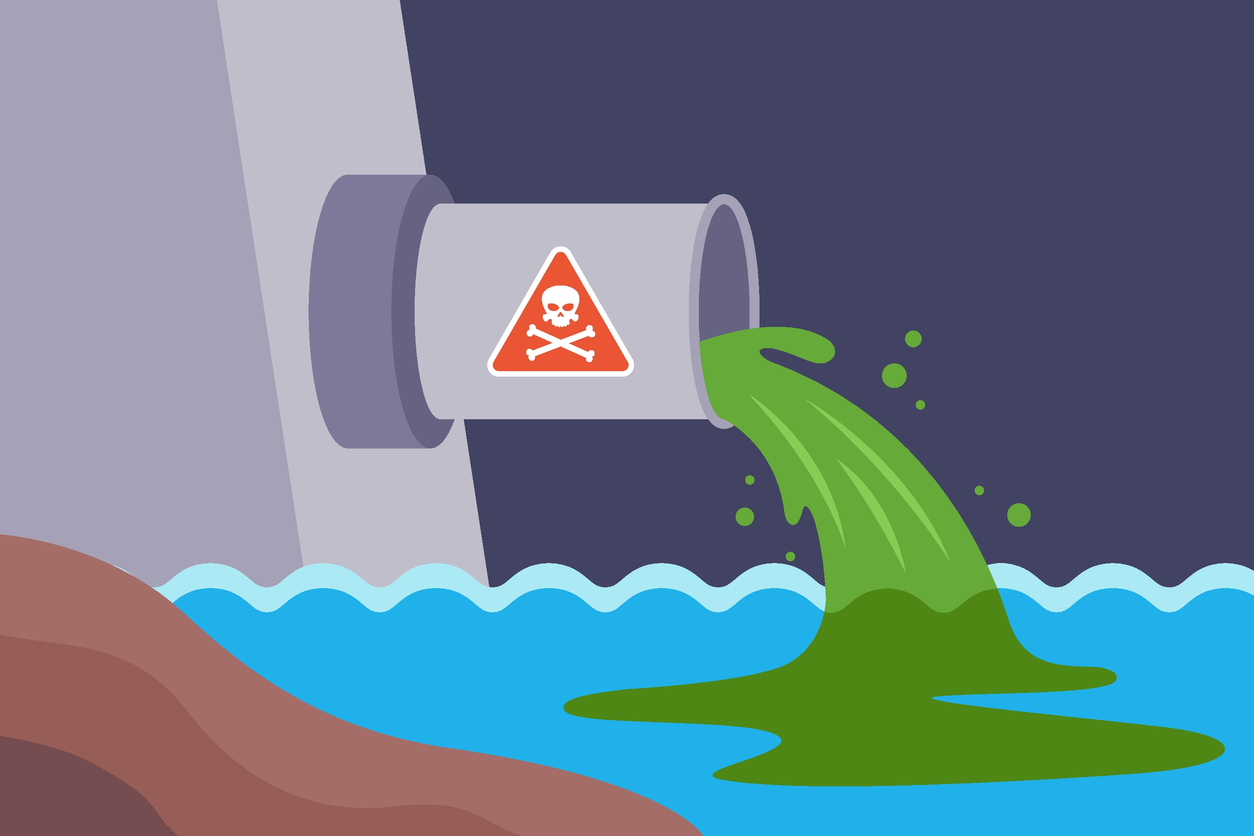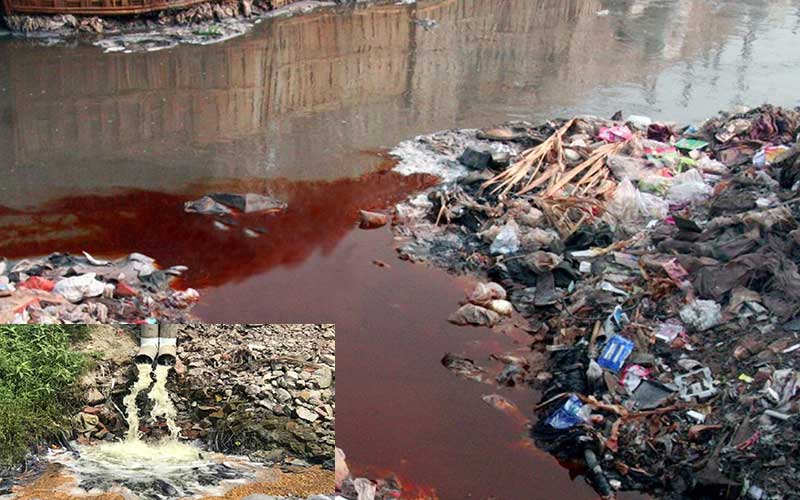Industrial Wastewater Treatment: Advanced Techniques for Effective Monitoring
Industrial Wastewater Treatment: Advanced Techniques for Effective Monitoring
Blog Article
Comprehending the Comprehensive Process of Fluid Waste Disposal: Best Practices and Environmental Impact Factors To Consider
The administration of liquid garbage disposal is a multifaceted concern that needs a thorough understanding of numerous finest practices and their linked ecological impacts. From the kinds of liquid waste produced to the methods used for collection, therapy, and final disposal, each action plays a crucial function in guarding ecosystems and public health. As governing standards advance and modern technology breakthroughs, the conversation around these processes comes to be increasingly relevant. What effects do these changes hold for future sustainability initiatives, and exactly how can stakeholders make certain that they are properly attended to?
Sorts Of Fluid Waste
Understanding the different types of liquid waste is necessary for efficient monitoring and disposal methods. Liquid waste can be extensively categorized into a number of types, each requiring unique handling and treatment strategies.
Industrial fluid waste commonly consists of harmful products, consisting of heavy steels, solvents, and chemicals, generated during producing processes. These wastes require rigorous regulative conformity to protect human health and wellness and the atmosphere. Residential fluid waste mainly describes wastewater generated from households, consisting of sewage and greywater, which, although less toxic, can still position significant dangers if poorly handled.
Agricultural fluid waste, including overflow from ranches, commonly has fertilizers and chemicals that can cause ecological destruction if not treated adequately. Clinical liquid waste, produced from health care facilities, consists of contaminated fluids such as bodily fluids and chemicals, requiring specialized disposal techniques to avoid infection and environmental contamination.
Last but not least, oil and grease waste, typically generated by dining establishments and automotive industries, can cause extreme blockages in drain systems if not taken care of properly. Comprehending these categories facilitates targeted strategies for treatment, conformity with laws, and efficient disposal approaches, eventually promoting ecological sustainability and public health security.

Collection Approaches
Reliable collection approaches are crucial for the appropriate management of fluid waste, ensuring that it is collected securely and efficiently prior to treatment or disposal. Numerous techniques are employed depending upon the kind of fluid waste produced, the quantity, and the certain features of the waste.
One usual approach is making use of committed collection tanks or sumps, which are created to record fluid waste at the resource. These systems typically integrate pumps that facilitate the transfer of waste to bigger storage space containers or treatment centers. In addition, mobile collection devices geared up with vacuum innovation are used in circumstances where waste is created periodically or in hard-to-reach places.
For industrial settings, closed-loop systems can effectively decrease spills and leakages, allowing for the recuperation and reuse of liquid waste. It is also important to educate workers on appropriate collection protocols to alleviate risks related to dangerous compounds.
Furthermore, carrying out normal maintenance schedules for collection devices guarantees optimum efficiency and security. The assimilation of advanced tracking systems can enhance collection performance by supplying real-time data on waste levels and potential threats. In general, reliable collection methods are foundational to lasting liquid waste administration techniques.
Treatment Processes
Treatment processes play a crucial function in the management of fluid waste, transforming possibly dangerous products into reusable resources or risk-free effluents - liquid waste disposal. These procedures can be extensively classified into physical, chemical, and organic approaches, each customized to address specific impurities existing in the waste stream
Physical therapy techniques, such as sedimentation and purification, job by getting rid of put on hold solids and particulate matter. These techniques are frequently the initial step in the treatment chain, successfully decreasing the load on succeeding procedures. Chemical therapies involve the usage of reagents to reduce the effects of damaging substances, speed up hefty metals, or oxidize organic contaminants, thus improving the safety and security of the effluent.
Organic treatment processes, consisting of activated sludge systems and anaerobic food digestion, take advantage of the all-natural abilities of microbes to deteriorate raw material. These methods are particularly reliable for wastewater consisting of biodegradable pollutants. Advanced therapy innovations, such as membrane layer filtering and progressed oxidation procedures, are significantly employed to accomplish greater levels of filtration.
Including a combination of these treatment methods not just makes sure compliance with regulatory criteria but also promotes ecological sustainability by recuperating useful resources from fluid waste.
Disposal Options
Just how can organizations make certain the safe and responsible disposal of liquid waste? Effective disposal choices are essential for safeguarding public health and the environment. The main methods consist of land treatment, incineration, and disposal adhered to by discharge into metropolitan wastewater systems.
Land disposal entails the mindful control of fluid waste in marked landfills, making certain that it does not leach right into surrounding dirt or water. Incineration, on the various other hand, topics liquid waste to high temperature levels, transforming it into ash and gases, which require appropriate purification to minimize exhausts. This approach is appropriate for contaminateds materials that can not have a peek here be treated with standard ways.
In instances where fluid waste can be treated, organizations might opt for chemical or biological treatment procedures to neutralize dangerous components before discharging the treated effluent right into metropolitan systems. This route usually aligns with governing requirements, making certain that the effluent meets safety and security requirements.
Eventually, organizations need read the article to carry out thorough analyses of each disposal option to identify its practicality, considering elements such as waste make-up, governing compliance, and potential risks to wellness and the atmosphere. By picking ideal disposal techniques, services can add to a liable waste administration method.
Ecological Influence
The ecological impact of fluid waste disposal is an essential factor to consider for companies seeking to lessen their environmental impact. In addition, the discharge of unattended or improperly treated waste into surface area waters can result in eutrophication, leading to oxygen depletion and the succeeding fatality of fish and various other microorganisms.

To reduce these influences, organizations must adopt ideal practices such as implementing strenuous waste treatment processes, advertising recycling and reuse, and adhering to regulative standards. By taking a positive strategy to fluid waste monitoring, entities can substantially reduce their ecological footprint while supporting sustainable growth objectives. Inevitably, a comprehensive understanding of the ecological impacts connected with fluid waste disposal is vital for educated decision-making and responsible stewardship of all-natural sources.
Final Thought
Reliable management of liquid waste is important for guarding environmental stability and public wellness. By taking on ideal methods in treatment, collection, and disposal, along with adherence to regulative requirements, the potential for harmful contamination of communities can be significantly decreased. Constant developments in innovation and procedures add to sustainable waste management initiatives. Inevitably, an extensive understanding of fluid garbage disposal not only mitigates ecological impacts but also fosters a dedication to accountable source management and environmental stewardship.
The administration of fluid waste disposal is a complex concern that calls for an extensive understanding of numerous ideal practices and their connected environmental impacts. From the types of liquid waste generated to the techniques utilized for collection, treatment, and final disposal, each step plays an important role in safeguarding ecological communities and public health.The environmental effect of fluid waste disposal is an important consideration for organizations seeking to lessen their eco-friendly footprint. Ultimately, a detailed understanding of the ecological influences connected with fluid waste disposal is essential for educated decision-making and liable stewardship of all-natural resources.
Inevitably, a comprehensive understanding of liquid waste disposal not only minimizes ecological original site influences however likewise promotes a dedication to accountable source management and environmental stewardship.
Report this page